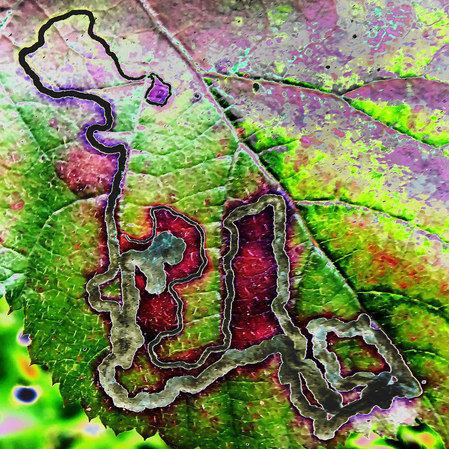We are no longer recruiting participants for this study
About the Study
The purpose of this study is to investigate if the use of imaginal exposure therapy can be helpful in reducing eating-related anxiety. Participants in the study will be asked to complete a phone screening, brief education about imaginal exposure therapy, and questionnaires before they begin participation in the study. Participants will be asked to think and write about an eating related fear or anxiety. Exposure therapy is beneficial for the reduction of anxiety, and as such is an expected benefit of participation in this study. Exposure therapy has been shown to help identify and decrease underlying fears that other types of therapy cannot access.
Read a testimonial from some of our participants:
"I just wanted to send you and your EAT Lab research assistants a heartfelt note of thanks for the opportunity to participate in the online imaginal exposure study. In a year that has been, on all counts and in all ways, utterly terrible, the senses of hope and empowerment that the imaginal exposure sessions helped me develop have been a saving grace… It would be incredibly easy to give up altogether on recovery. But instead, what I've learned about myself and my resilience has helped me take some control back from my eating disorder. For the first time in a very long time, I have a glimmer of hope that maybe recovery IS possible. Knowing that I can sit with discomfort and not go completely crazy has helped me accept the challenges of eating "forbidden" foods and reducing exercise in order to gain weight. It's not easy, but I do like that my body is getting stronger and allowing me to do things I enjoy... It is still really (really) difficult, but I am beginning to gain more confidence."
"I am very grateful and feel honored to have gotten the opportunity to participate in Dr. Cheri's exposure study. Dr. Cheri and her team were very kind and supportive. By utilizing the exposure techniques and following the guidelines, my fears towards feeling like a "failure" and "not good enough" decreased and I felt like I had accomplished something and had done some good work. Thank you so much Dr. Cheri for allowing me to be a part of your study!"
"I just wanted to send you and your EAT Lab research assistants a heartfelt note of thanks for the opportunity to participate in the online imaginal exposure study. In a year that has been, on all counts and in all ways, utterly terrible, the senses of hope and empowerment that the imaginal exposure sessions helped me develop have been a saving grace… It would be incredibly easy to give up altogether on recovery. But instead, what I've learned about myself and my resilience has helped me take some control back from my eating disorder. For the first time in a very long time, I have a glimmer of hope that maybe recovery IS possible. Knowing that I can sit with discomfort and not go completely crazy has helped me accept the challenges of eating "forbidden" foods and reducing exercise in order to gain weight. It's not easy, but I do like that my body is getting stronger and allowing me to do things I enjoy... It is still really (really) difficult, but I am beginning to gain more confidence."
"I am very grateful and feel honored to have gotten the opportunity to participate in Dr. Cheri's exposure study. Dr. Cheri and her team were very kind and supportive. By utilizing the exposure techniques and following the guidelines, my fears towards feeling like a "failure" and "not good enough" decreased and I felt like I had accomplished something and had done some good work. Thank you so much Dr. Cheri for allowing me to be a part of your study!"
Frequently Asked Questions
|
Who can participate?
Anyone who has or has had an eating disorder or who has eating or weight related fears. The study is completely online and by phone - you can participate from anywhere in the world. How will this benefit me? The possible benefits of this study include a potential decrease in anxiety over the course of the study, as well as a potential decrease in eating disorder behaviors & symptoms. How will this benefit others? Other people will eating disorders or eating related anxiety may benefit from the results of this study. Help us cure eating disorders!! |
|
What is the purpose of the phone screening? During the phone screening you will be asked about eating and weight-related concerns and fears. We will also ask you about several additional psychological symptoms and behaviors. The phone screening will last approximately 10 to 30 minutes, and at the end of the screening we will let you know if you meet criteria to participate in the study. If criteria to participate in the study are met, what are the next steps? We will provide you with a brief education about imaginal exposure therapy that will last approximately 10 to 20 minutes. You will then be given a link to complete several online questionnaires. These questionnaires will take approximately 30 to 40 minutes. After you complete the questionnaires, you will begin participating in several online imaginal exposure sessions. |
|
How many sessions would I complete in the study? You will be asked to complete an imaginal exposure session one time per week for a total of four (4) weeks. Approximately one month after the 4th session, you will be asked to complete several follow up questionnaires online. How long will each session last? Each session will last between 45-60 minutes. You will spend 20-30 minutes writing about a specific fear or anxiety you have, then another 20-35 minutes re-reading and imagining that what you have written is happening. |
|
How will risks be prevented? There will always be a clinician available in case you becomes distressed during these sessions. There are no other foreseeable risks other than anxiety and possible discomfort in answering personal questions. In addition, you can stop a session and the study at any time. How much will I be paid? You will be given an Amazon or Target gift card as compensation for participation in the study. You will be paid $10 dollars for the completion of the phone screen, $10 for completion of the online questionnaires, and $20 dollars for each imaginal exposure session. If you complete all parts of the study, you will receive $125 dollars. You can still participate in the study even if you don't want to be paid. |





